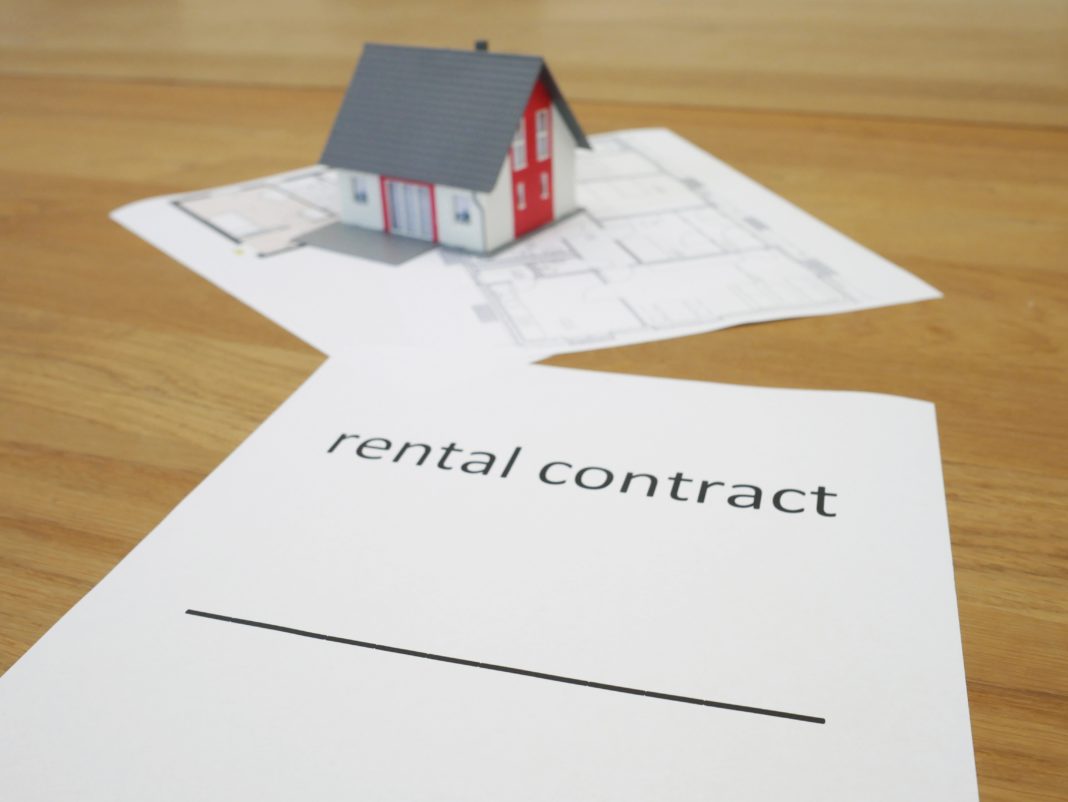With the election less than a week away, rent control and just cause eviction protections remain hot topics for Fairfax, San Anselmo and Larkspur voters. All three municipalities have ballot measures to decide on the two issues.
Rent control sets the amount a landlord can raise rents, often tied to the local Consumer Price Index increase. However, not all rentals in California are currently subject to rent control. The state’s Costa-Hawkins Rental Housing Act exempts single-family homes, condos and units built after 1995.
Just cause eviction regulations prevent landlords from arbitrarily evicting tenants. Typically, when the landlord wants the tenant to vacate for a reason covered under just cause policies, the landlord must provide a relocation payment to the tenant.
The only thing proponents and opponents of the measures agree on is that the stakes are high. Rent control supporters point to extremely high rents driving low- and middle-income earners out of Marin. While California’s Tenant Protection Act—AB 1482—caps rent increases, rents could rise up to 10% annually based on the Consumer Price Index.
The opposition believes AB 1482 is sufficient. “Extra” rent control deters landlords from maintaining and improving their properties.
“Renter protections allow ordinary working people to live in Marin,” said Curt Ries, co-chair of Marin’s Democratic Socialists of America chapter. “These are the people who make our communities run, like our teachers, maintenance workers, healthcare workers and service workers. It’s not right that only the very, very affluent can live here and enjoy the wonderful communities that these workers build and maintain.”
Michael Sexton, a Fairfax resident who rents out half of his duplex, has led the charge against rent control and just cause eviction protections in Marin. As the director of Marin Residents, a nonprofit opposing the two issues, Sexton helped place the Fairfax measure on the ballot.
“Right now, in my perspective, extra rent control, this onerous thing, is a disincentive for small landlords to rent out their space,” Sexton said. “The biggest issue I have with just cause is when it comes to an owner having to sell. Realtors say it’s cleaner if there’s no tenant. But the only way that a tenant will leave is they die, or you buy them out.”
Marin renters, mom and pop landlords, corporate landlords, realtors, local politicians, labor unions and a variety of associations have debated the pros and cons of the two issues, sometimes resulting in chaotic town and city council meetings.
Big money has flowed into the small-town campaigns, especially from opponents of Larkspur’s Measure K, which, if passed, would strengthen existing rent control and just cause eviction protections. The corporate owners of Larkspur’s two largest apartment complexes helped form Marin Residents for Protecting Larkspur’s Future, a committee opposing Measure K, and then made considerable contributions.
As of Oct. 7, Prime Administration and affiliated entities, owner of Skylark Apartments in Larkspur, contributed $49,000 this year. Hummingbird Hill contributed $49,000 in 2024. A little digging traces Hummingbird Hill back to Andrea Schultz, owner of Bon Air Apartments in Larkspur. The other large donor, California Apartment Association, wrote a check for $15,000.
In contrast, Keep Larkspur Fair and Affordable, a committee supporting rent control and just cause eviction policies, received two sizable donations—$5,000 each from the Service Employees International Union Local 1021 and the California Nurses Association.
Let’s review other information that may help voters in Fairfax, San Anselmo and Larkspur determine whether rent control and just cause eviction policies would benefit their communities.
Marin County ranks as the country’s fourth most expensive housing market, with a median home price of almost $1.6 million, according to the National Association of Realtors. Mortgage company JVM Lending estimates that a household must earn at least $282,000 annually to afford that home.
The expensive housing market forces most low- and middle-income individuals and families to rent. In a 2024 Rental Affordability report by ATTOM, a real estate data firm, Marin ranks as the country’s third most expensive rental market.
The California Housing Partnership calculated that a Marin renter needs to earn $54 an hour—3.5 times the state’s minimum wage—to afford the average monthly rent of $2,806.
When households spend more than 30% of their income on rent, they are considered rent-burdened. According to the County of Marin, 44% of the county’s renters spend more than 35% of their income on rent.
Since the mid-1940’s economists have studied the impact of rent control, finding benefits and consequences.
“Economists generally have found that, while rent-control policies do restrict rents at more affordable rates, they can also lead to a reduction of rental stock and maintenance, thereby exacerbating affordable housing shortages,” said a 2024 article by the Federal Reserve Bank of St. Louis. “At the same time, the tenants of controlled units can benefit from lower costs and greater neighborhood stability—as long as they don’t move.”
However, last year, 32 economists from top universities wrote a letter to the Biden Administration supporting tenant protections.
“High rents and a lack of tenant protections negatively impact tenants and their families, as well as the larger economy,” the economists said. “At the household level, high rents lead to housing insecurity, homelessness, health challenges, and economic precarity for already-struggling renters.”
Whichever side you support, it’s important to know what a yay or nay vote means on each of the ballot measures.
Yes—Opponents of rent control and just cause evictions gathered enough petition signatures to place a measure on the ballot asking voters to repeal the existing rent control ordinance and replace it with a weaker policy that includes no local cap on rent increases. The current just cause eviction ordinance would be replaced with state law and a 2019 Fairfax ordinance, which has fewer tenant protections. In the future, the town council would not be allowed to pass new ordinances on these two issues without voters’ approval during an election.
No—Rent control supporters should cast a “no” vote, leaving the two current ordinances in effect. The town council could change the ordinances, giving it greater flexibility to consider residents’ ongoing needs.
San Anselmo – Measure N and Measure O
Yes on N—In April 2024, the San Anselmo Town Council approved a rent stabilization ordinance for triplexes and larger rental properties. Those opposing the ordinance gathered the required number of signatures on a referendum petition to essentially freeze and challenge it. Voting “Yes” on Measure N allows San Anselmo to enact the rent stabilization ordinance already approved by the town council.
No on N—The rent stabilization ordinance would not be enacted.
Yes on O—The San Anselmo Town Council placed this measure on the ballot. A “Yes” vote will enact an ordinance with just cause eviction policies and other tenant protections.
No on O—The town would not enact an ordinance with tenant protections.
Yes on K—Marin’s chapter of the Democratic Socialists of America, along with the tenant associations from Skylark Apartments, Bon Air Apartments, and other rent control and just cause eviction policy supporters, gathered enough signatures to place Measure K on the ballot. If passed, Larkspur’s current rent control and just cause eviction ordinances would be replaced with the strongest renter protections in the county, including capping annual rent increases at 3%.
No on K—Larkspur would keep its current ordinances, permitting up to a 7% annual rent increase and limited just cause eviction protections.
Editor’s Note: Prime Administration’s contribution was corrected to reflect the accurate amount.








